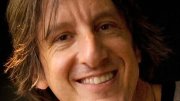One would be hard-pressed to come up with a more serious (and worthy) mission statement than The Library of America's:
The Library of America was founded in 1979 to undertake a historic endeavor: to help preserve the nation's cultural heritage by publishing America's best and most significant writing in durable and authoritative editions.
The idea for The Library of America was first discussed among scholars and literary critics who were concerned that many works by America's finest writers were either out of print or nearly impossible to find. Without a deliberate publishing effort to preserve American writing, many important works would virtually disappear and be lost to future generations. Deprived of an important part of their cultural inheritance, Americans would lose a collective sense of the country's literary accomplishments. The Pléiade series published in France provided a model, and discussion of a similar American series continued until the late 1970s, when seed money from the National Endowment for the Humanities and the Ford Foundation was secured to create The Library of America. The first volumes were published in 1982.
Among those who conceived of this publishing enterprise was Thomas professor of English and American literature emeritus Daniel Aaron, Ph.D. '43, Litt. D. '07 (read an excerpt from his memoir here; coverage of his honorary degree and his National Humanities Medal appear here, respectively). Current Library of America (LOA) directors include chairman D. Ronald Daniel, Harvard's former treasurer and Corporation member, and Fletcher University Professor Henry Louis Gates Jr.
Now, into this very proper pantheon comes…humorist Andy Borowitz '80 (see "April Fool Every Day," the 2009 Harvard Magazine profile), proprietor of the online Borowitz Report, an equal-opportunity satire site. He is the anthologist of the new LOA volume, The 50 Funniest American Writers, According to Andy Borowitz: An Anthology of Humor from Mark Twain to The Onion—in a distinctly un-sober orange and ivory dust jacket.
His selections range from Twain and George Ade to Woody Allen, Calvin Trillin, and fellow alumni Ian Frazier ’73 (profiled in 2008 in "Seriously Funny"), David Owen ’78, and such Harvard Lampoon stalwarts as Henry Beard ’67, Mark O'Donnell ’76, and the late George Trow ’65 (see "Comedy, Harvard, and Hollywood" for more about them), plus graduate alumnus Roy Blount Jr., A.M. ’64.
Borowitz, as expected, wears the burden of editor/anthologist lightly. He begins his introduction by asking, "Does being funny get you girls?" How did he choose 50 selections? he asks himself, and answers, "I showed the people at The Library of America my favorite humor pieces; they showed me theirs; and when we found 50 we agreed on, we stopped. To celebrate, we ordered Chinese food, using much the same process." He confesses the "dirty little secret about anthologies: they're all arbitrary. I just have the cojones to admit it." About this volume, he continues:
Trying to rank artists is a tricky business. A reporter once asked John Lennon if Ringo was the best drummer in the world. Lennon answered, "He's not even the best drummer in the Beatles." Funny people might be even harder to rank than drummers. There's probably nothing more subjective than a sense of humor, which could explain why those Playboy centerfolds found Lee Majors so riotous.
Given that challenge, why name the volume The 50 Funniest American Writers? "Let me answer that as honestly as I can: to sell books." Which leads to a further question:
…you're probably wondering how I convinced the august gatekeepers at The Library of America to go along with such a crass scheme. I hate to shatter your illusions about the LOA, but in my entire career I have never met a more shameless cabal of publicity whores. They don't think twice about slapping a grabby title on one of their books if it'll turn a quick buck. If you don't believe me, check out their catalogue; it's larded with temptations like History of the United States During the Administrations of James Madison (1809-1817).
Not.









